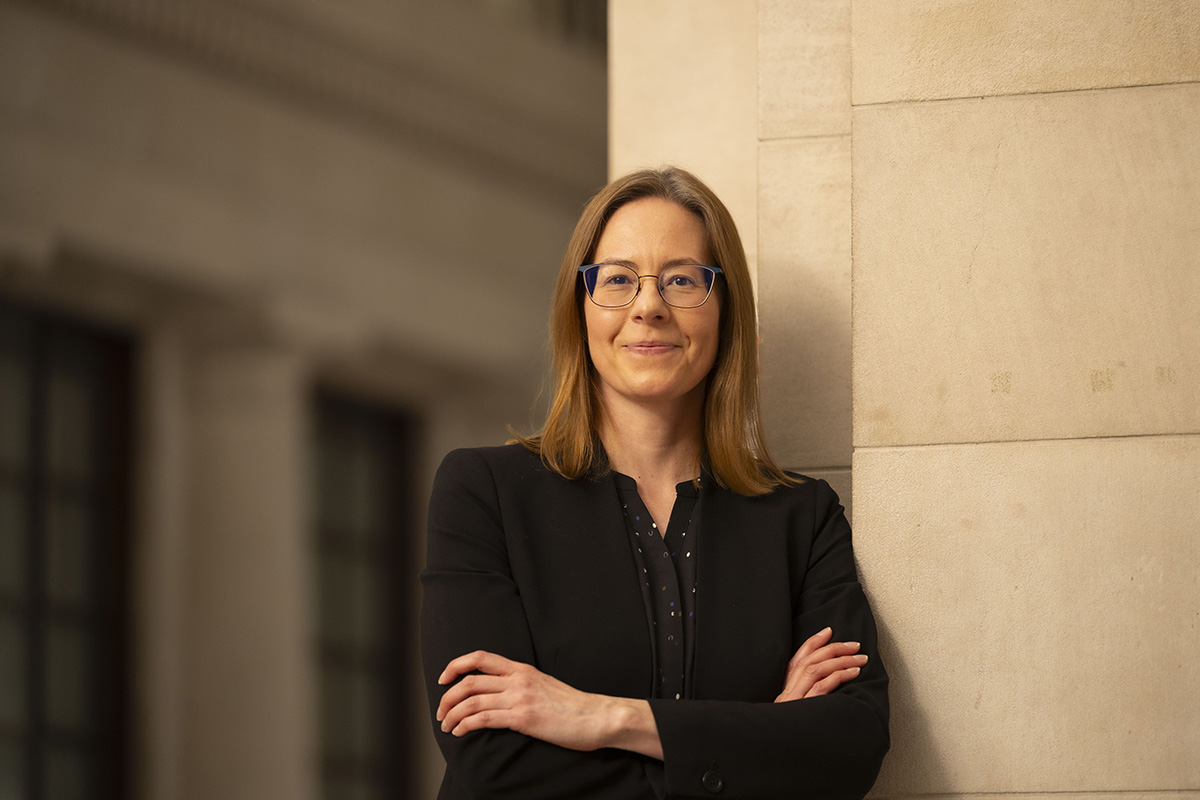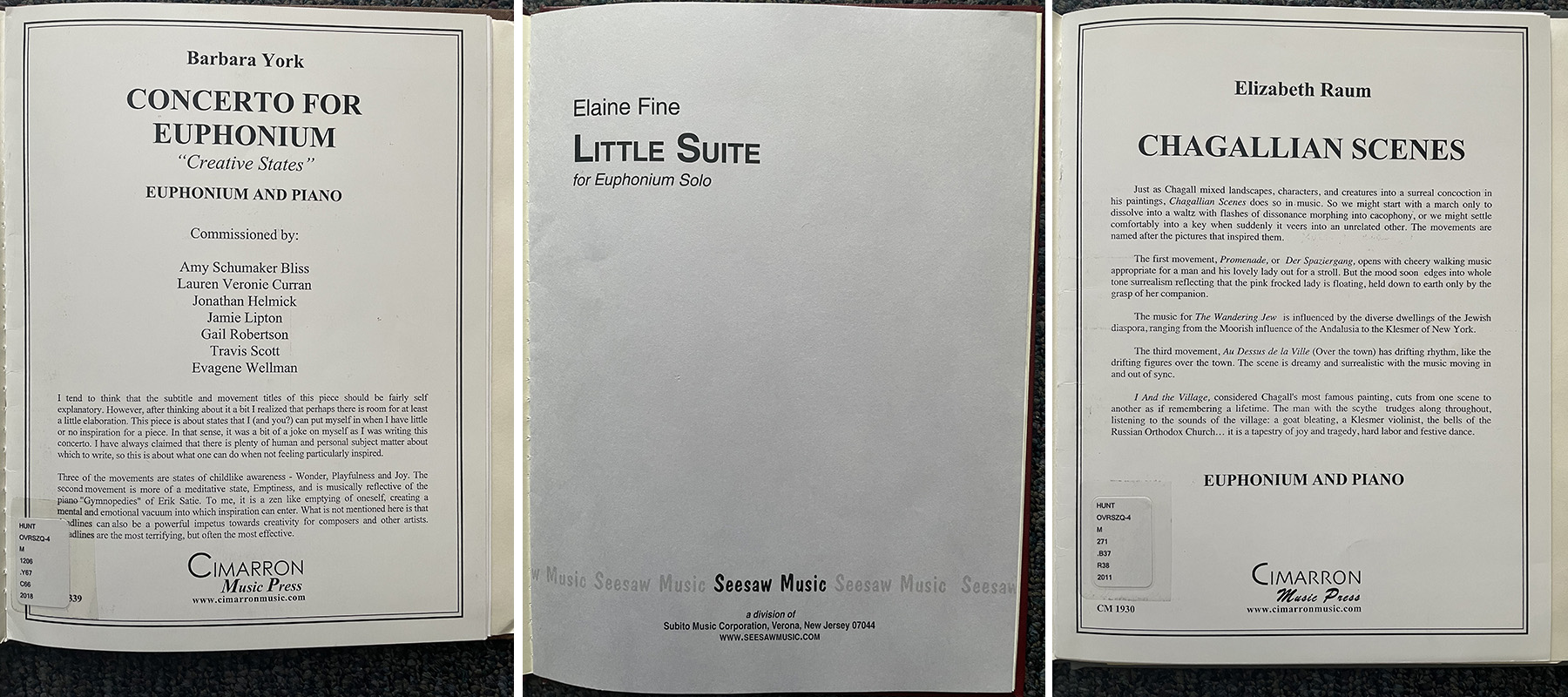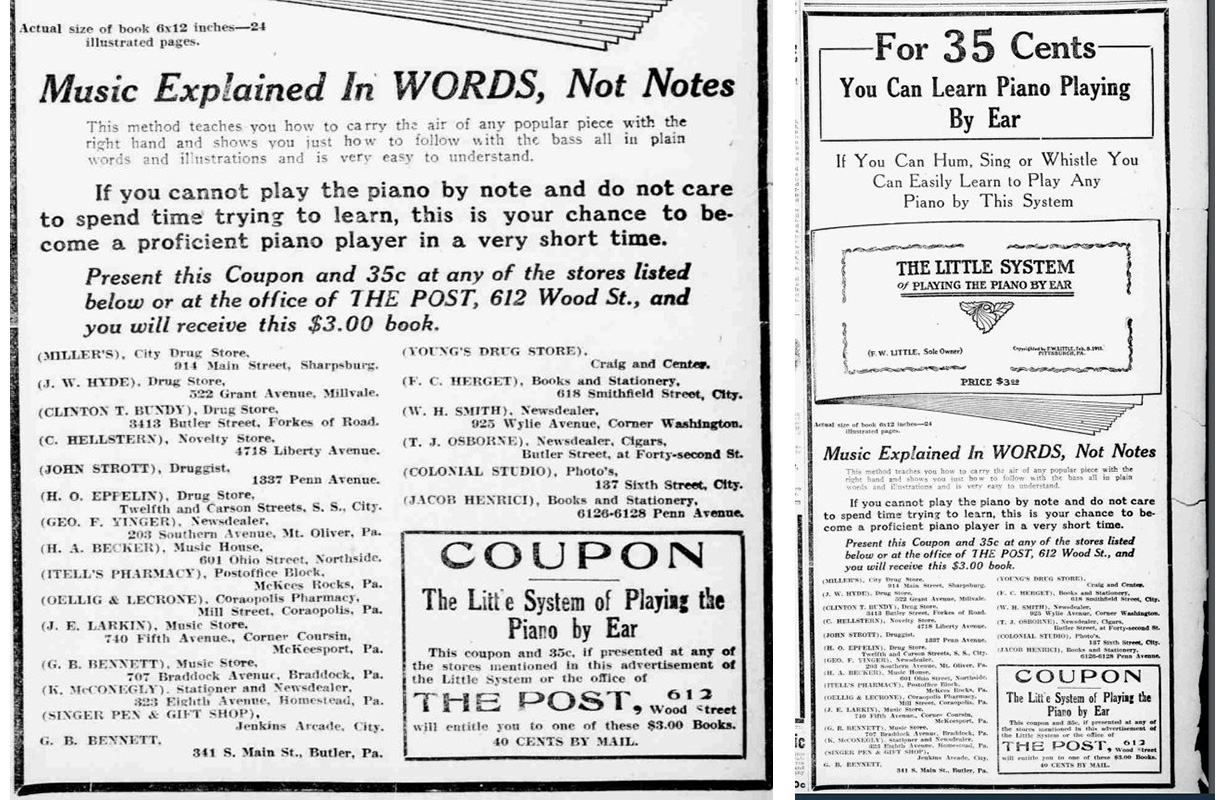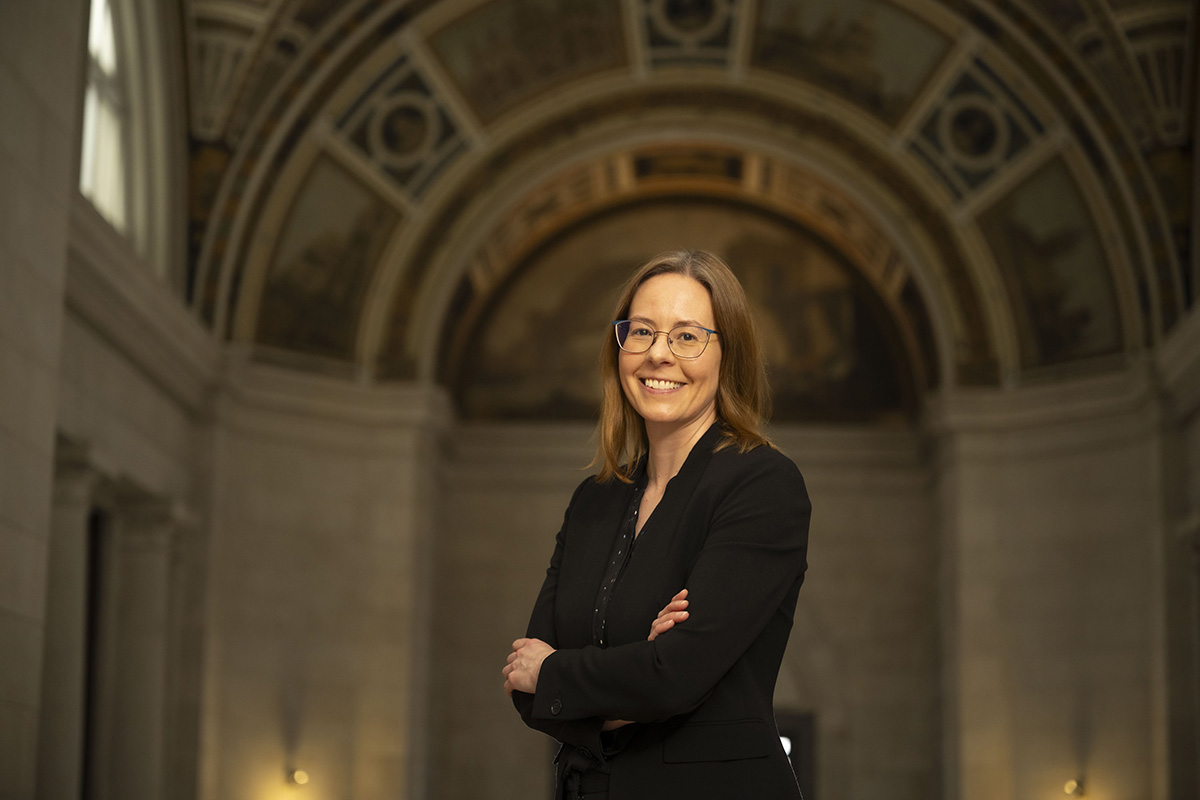
by Sarah Bender, Communications Coordinator
The University Libraries is steadily working to integrate diversity into a broad range of programs and initiatives, receiving the 2024 Library Excellence in Access and Diversity (LEAD) Award from INSIGHT Into Diversity magazine for encouraging and supporting DEI across campus. The Libraries’ many collections have increasingly highlighted diversity as well.
For Senior Librarian Kristin Heath, music and catalog librarian, the Libraries’ music collection was a natural area to start increasing representation. She has worked as a liaison between the Libraries and the School of Music for 21 years, and her process to diversify the collection over that time has been organic and intuitive — an ongoing conversation with students to identify and locate the materials that will most impact their studies and allow their unique personalities as musicians to shine through.
“CMU’s music students really want to play more contemporary works, and they feel like their program gives them the flexibility to pursue music that reflects them,” Heath said. “It’s important for students to have access to a good mix of sources, and to be able to access pieces beyond the standard repertoire from European composers. I’m glad to be here as a resource for them.”
A Key Resource
The music collection encompasses a vast number of materials and resources that music students and other community members can take advantage of, including tens of thousands of print books and scores, LPs and CDs, streaming services for listening to music and watching music performances, and more. To help students navigate this wealth of information, Heath created an extensive music research guide that breaks the resources down into key categories.
Some categories sort resources into types: music journals, rare items available through Special Collections, scores and parts available in online databases. But Heath has also worked to highlight specific marginalized communities in the guide as well. She created her first DEI-focused list, identifying Black composers, for a School of Music course about the history of Black American music. Over the years, she has added resources designed to help musicians search for Asian and Asian American composers, Indigenous composers, Latin American composers, Queer composers, and others.
“These pages are just a starting point to get people going,” Heath said. “But it’s exciting to help raise awareness that all of these artists are out there, and to help bring works to light that haven’t had the opportunity to be showcased before.”

Working in Harmony
Nicole Guccione, a 2023 graduate of the College of Fine Arts, was a first year music major beginning her study of euphonium performance when she wandered up to the fourth floor of Hunt Library and started browsing the repertoire available for her instrument. She began playing the pieces that caught her eye — but soon found that there weren’t as many works of marginalized composers available as she had hoped.
When Guccione reached out, Heath was more than willing to collaborate on expanding the collection. During her time as a student, she was able to suggest new pieces by a diverse array of composers, including women and people of color, to add to the available music. In addition to Guccione’s suggestions, collaborations with other School of Music faculty and students have helped Heath expand music available for saxophone, tuba, and cello, as well as other instruments.
“Kristin has always been so supportive whenever I suggested new ideas for repertoire to add to the library, and she has made a great deal of wonderful music more accessible through these efforts,” Guccione said. “I like to think that now when incoming music students browse the repertoire, they'll naturally and seamlessly come across an even more equitable array of composers and music, thanks to Kristin's work and advocacy.”
Playing the Detective
While some pieces sit in the stacks or online databases waiting to be discovered, others that students request are not so easy to track down. Once, a student reached out to Heath for assistance finding sheet music for a piano piece by György Ligeti called “Chromatische Phantasie,” which he heard in a YouTube video.
Unable to find the music at CMU or any other library, Heath emailed the musician in the video directly to find out where he acquired the piece. It turned out that the music was unpublished, passed along from a friend of a friend of Ligeti himself. The musician included the sheet music in his response, and Heath was able to share it with the student.
“This part of the job ends up being like detective work,” Heath said. “I keep an open mind and approach the searching process by considering the possibilities. I don’t give up easily, and I’m able to find really hard-to-get items in this way — for many of these pieces, we’re the only library that has them!”
The benefits of Heath’s detective skills even extend beyond CMU. A woman from the Pittsburgh community reached out to the Libraries about a cello and piano piece by Alexander Krein called “Jewish Melody op. 43.” Her son wanted to play for his bar mitzvah, but they couldn’t find it anywhere.
By searching online, Heath was able to locate a musician — born in Siberia and living in Germany — who had performed the piece, which he discovered in an archive. She decided to reach out and see if he could help her. For a small fee, he sent a copy of the music to Heath, who was then able to catalog it and share it with other libraries looking for a copy.

Next on Heath’s list to unearth is “The Little System of Playing Piano by Ear,” by F.W. Little, a pamphlet from the Pittsburgh area in the early 1900s that she is trying to track down for an independent researcher in San Francisco. The pamphlet was sold in local drugstores, music stores, and the Pittsburgh Post Gazette office, and then later by mail order.
“My hope is that it’s in someone’s personal collection — in a box in someone's attic, basement, or garage, or if we're lucky on someone's book shelf,” Heath said. “I think it would be fun to collectively look for this pamphlet as a city. I encourage the community to join the detective hunt, and get in touch with me if you locate this item.”
Reaching New Audiences
In addition to her work with the music collection, Heath also teaches courses for the School of Music. Each fall, she leads two sessions of Music Research Methods, a required mini course for graduate students. In the class, students learn to apply a variety of print and online music resources available in Hunt Library and area libraries toward researching and writing a program note, which gives information about composers and music pieces in a performance.
Heath created an additional assignment that encourages the exploration of resources for composers from marginalized communities. By exploring Libraries’ databases and physical materials on the shelves, students work in groups to find information about these lesser-known artists, developing their own detective skills that will contribute to their success as both a researcher and performer.
Most of Heath’s engagement with undergraduates comes from class visits, especially through a series of classes about music history. These visits give Heath a chance to introduce undergraduates to the wealth of resources available as well, and extend the reach of many lesser-known pieces even further.

“Kristin is an incredible colleague — she has visited my classes on several occasions to show the students how to use all of the resources of the library, a skill that will help them throughout their careers,” said Vocal Coach and Collaborative Pianist Ellen Rissinger. “She has been a great partner in sourcing scores and diction resources in Russian, Spanish, Japanese, and Korean, gone above and beyond in acquiring Chinese Art Songs and getting the books translated, as well as helping a student get scores for an independent study on LGBTQ+ composers, and is always happy to consider requests for new scores. Kristin's passion for music has helped expand the vocal repertoire of our students, broadening their horizons and giving all of us the opportunity to continue to grow and learn.”
“By finding and sharing these pieces created by members of marginalized communities, we’re able to support the work of these composers, and of course challenge and inspire up-and-coming musicians,” Heath said. “Beyond that, the School of Music has a very entrepreneurial spirit — students are exploring other ways to use a music degree, combining it with other disciplines or creating apps and other tangible products. I’m excited to see how my role, and the field as a whole, continues to evolve moving forward.”
To dive into the music collection at CMU, view Heath’s music research guide or browse what’s available in the Libraries’ catalog.
